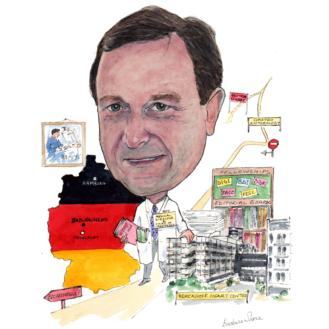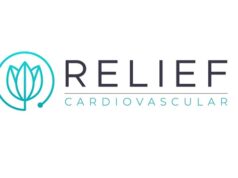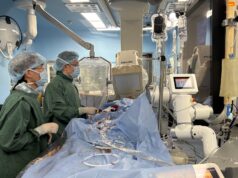
Cardiovascular News International talks to Professor Christian Hamm, Director of the Department of Cardiology, Kerckhoff Heart Center, Bad Nauheim, Germany, about his influences, current areas of research, and the challenges facing cardiology.
When did you decide you wanted a career in medicine?
In my family there are many doctors, my father and my grandfather were general practitioners. However, I thought I had to break this tradition and started studying German literature. My father accepted this only if I also signed up for medicine. It soon turned out that medicine fascinated me much more and I switched over. A career was never on my schedule, first I wanted to become a well trained doctor.
Why did you decide to specialise in internal medicine and cardiology?
This was more by chance. I did not want to become a surgeon, but wanted to do something with my hands also, not only ward rounds. I planned to become a gastroenterologist, but was not accepted, because I was considered not to be dedicated enough. The gastroenterologists recommended cardiology to me, because this was seen as an unimportant subspecialty at the end of the seventies. So, I was lucky that cardiology was a specialty that progressed so rapidly. Particularly the rise of interventional cardiology came at the right time for me.
Who have been your greatest influences?
I have several teachers in my career that influenced me at different phases. The late Professor Walter Bleifeld was my first clinical teacher who supported me very early by letting me into the cath lab. I could develop interventional skills at a young age which I try today also with selected fellows in my department. Professor Bleifeld was in addition somebody with great visions, who early recognised that acute coronary syndromes is an important field of research and he taught me to always strictly think in pathophysiologic terms. From Professor Lionel Opie I learnt during a wonderful research fellowship in Cape Town to write scientific thinking and writing papers – something that was of great help when I returned to clinical cardiology. Before I became chief of a large department, I learnt from Professor Thomas Meinertz how you have to talk to the patient. The best knowledge of facts and skills in the cath lab are of less value if you cannot communicate with the patient. I am also proud to say that Professor Eugene Braunwald was an important mentor to me who early understood the value of troponins in acute coronary syndromes and supported me making this heard.
What have been your proudest moments?
If I exclude my private life highlights, maybe my first standalone percutaneous transluminal coronary angiography in 1983. The daily positive feedbacks from satisfied patients are always new proud moments. Great moments are still always, when a paper is completed and accepted by a high ranked journal. This gives a kick and the satisfaction to continue in periods when things are not running so well.
How has invasive cardiology evolved since you began your career? Where do you see this field going in the next ten years?
I was so lucky to be involved in interventions since the early eighties, which means that I have more than 25 years of experience in manipulating in coronary arteries. The changes are enormous. The fellows of today have not the faintest idea what can happen, if you do not have stents. I am fascinated by the developments in coronary interventions but preserved great respect of what can happen. The potential of catheter based interventions like in valves seems to be the next wave of innovation in interventional cardiology over.
What do you think are the biggest challenges facing the management of acute coronary syndrome today?
The treatment has reached such a high level of development. The challenge is more to get the best treatment to the patient and to make it affordable.
How far do you think it is possible to go regarding advances in drug-eluting stents?
I see drug-eluting stents as only a transient phase. In the long term we will find ways not to leave metal behind. The next step will be bioabsorbable material.
What are your current areas of research?
My key areas of research are of course everything around acute coronary syndromes and invasive cardiology. That means new biomarkers, remodeling and optimising the treatment. Here, we have a great number of ongoing experimental as well as clinical studies. The preclinical phase is currently something that I focus on to improve in terms of diagnostic tools and therapy. I have also an active research group on cardiac magnetic resonance imaging and electrophysiology. In general, my interest is always to bring the basic science results to clinical practice.
Outside of medicine, what other interests do you have?
Literature remained important to me, if I find the time to read. Travelling with my family and seeing other parts of the world without giving only lectures helps me to understand that cardiology is only a small share of what is going on in the world.
Fact file
Education and training
1973-1976 University of Mainz, Germany
1976-1979 University of Hamburg, Germany
1980-1981 Research Fellow at Ischaemic Heart Research Unit, University of Cape Town (Professor LH Opie), South Africa
1981-1984 Department of Cardiology, University of Hamburg (Professor W Bleifeld)
1985-1987 Medical Clinic and Department of Radiology, University of Hamburg
1988 Postgraduate qualification in internal medicine and cardiology
1989-1998 Associate Professor in Internal Medicine & Cardiology, Department of Cardiology, University Hospital Hamburg
Since 1999 Full Professor of Cardiology, State of Hessen
Editorial boards
European Heart Journal, Circulation, Clinical Research in Cardiology, Education in HEART, Cardiology International, Emergency care, Current Cardiology Reviews, International Journal of Cardiovascular Interventions, Clinical Cardiology, EuroIntervention, Acute Cardiac Care, Cardiology in Review, Recent Patents on Cardiovascular Drugs
Fellowships
1991 Fellow of the European Society of Cardiology
1993 Fellow of the American College of Cardiology
1982 German Society of Cardiology
1988 German Society of Internal Medicine
1989 German Society of Intensive Care
Major fields of research
Cardiac biomarkers, acute coronary syndrome, invasive cardiology, cardiac magnetic resonance imaging and computed tomography
Study steering committees/Principle Investigator
GABI, CRUSADE, TRUST, STING, COBRA, PRIDE (Europe), German Cypher Registry, DaVinci, APEX-AMI, CHARISMA, IBIS-2, PEPCAD-III, CHAMPION, CRESCENDO, ON-TIME 2.
Major publications
190 original peer reviewed papers, 92 editorials and reviews, more than 600 abstracts, three books.










